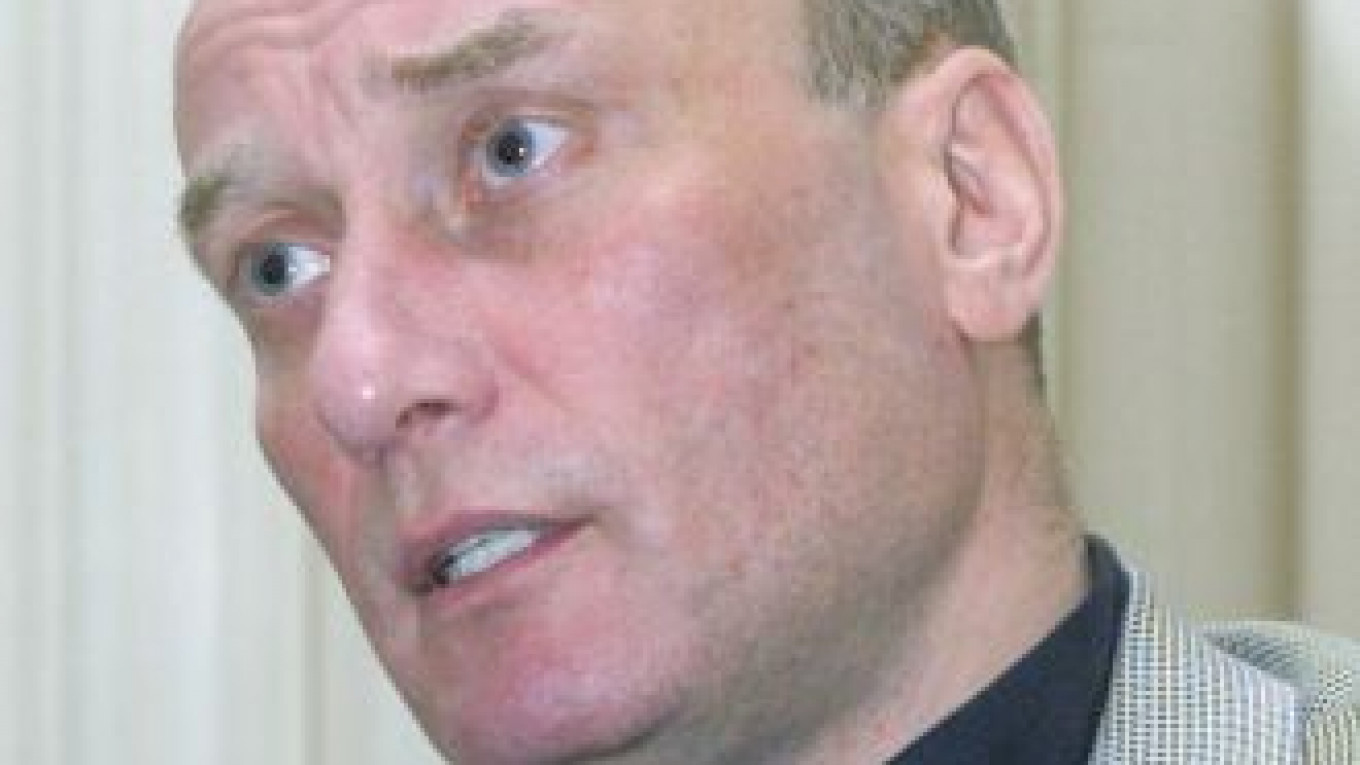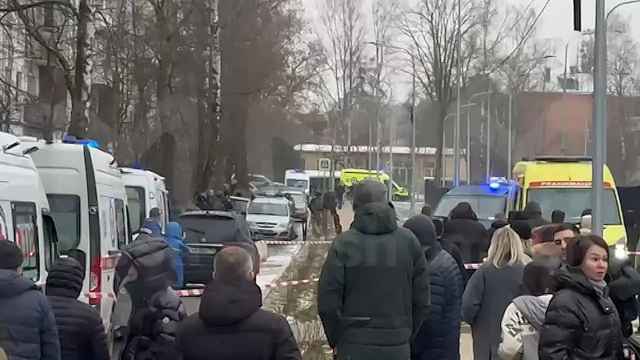Pavel Maslovsky, CEO and board member of gold miner Petropavlosk, is giving up his position with the company to become a Federation Council senator, the company said Tuesday.
Maslovsky, who co-founded London-listed Petropavlosk, was elected by the local legislature of the Amur region in the Far East — where the company owns four gold mines and is building a new $3.5 billion complex of iron ore-processing and extraction plants.
Though he was the sole candidate for the senator slot, he won 25 out of 36 lawmakers' votes during a secret ballot conducted at the Amur legislature on Monday, Interfax reported, citing the regional government's press service.
The Federation Council is the upper house of the Russian parliament and provides final approval for bills passed by the State Duma, although it can initiate bills itself. It has two representatives from each of Russia's regions, with one appointed by the regional legislature and the other by the regional administration.
Maslovsky will have to resign as the company's CEO and relinquish his seat on the board of directors in line with legislation prohibiting government officials from being involved in business, if this causes a conflict of interest, Petropavlovsk said in a statement.
The new senator will also resign from the board of directors of Petropavlovsk's iron ore unit, Hong Kong-listed IRC Limited, the statement said.
"As a founder of the business and its longtime CEO I will, of course, miss the day-to-day management of its operations," Maslovsky said in the statement.
Senators with a background in business are plentiful in the Federation Council, while former government officials who were granted senator seats as an honor make up another group, said Tatyana Stanovaya, a France-based analyst with the Center for Political Technologies.
Senatorship guarantees businessmen a number of advantages, including increased status, immunity from prosecution and improved ties with regional authorities, she said by telephone.
But it is the same businessmen who tend to undermine the reputation of the Federation Council, which is mistrusted by many Russians, Stanovaya said.
Although legislation obliges senators to pass all their assets to some form of blind trust to avoid any conflict of interest, it's sometimes very difficult to check who in fact manages the assets, with reassigning them to immediate family members being a common practice, she said.
Andrei Molchanov, a senator from the Leningrad region who owns developer LSR Group, became the wealthiest Federation Council lawmaker last year with a fortune of about 3.3 billion rubles ($103 million), according to an income declaration published on the Federation Council's web site in May.
In 2010, Kremlin-connected banker Sergei Pugachyov, who represented the remote Siberian Tuva republic, outearned other lawmakers, declaring an income of more than 3 billion rubles. The region's head, Sholban Kara-ool, ended Pugachyov's job as a senator earlier this year, due to numerous complaints that Pugachyov didn't fulfill his duties properly. Pugachyov was supposed to be in office until April 2012. His International Industrial Bank was declared bankrupt late last year.
With an estimated fortune of $550 million, Maslovsky was ranked 167th in the Forbes list of Russia's wealthiest businessmen this year.
Maslovsky, who owns about 7.9 percent of Petropavlovsk, said he plans to retain his stake in the company through discretionary trusts.
He'll also be granted the title of honorary president of the company and share his expertise with management, but won't get compensation, Petropavlovsk said.
Petropavlovsk shareholder Sergei Yermolenko, who has been with the company since it was founded in 1994, will be appointed the new CEO.
Maslovsky said Monday that although his candidacy was suggested by the ruling United Russia party, he would do his best to ensure that the interests of other political parties in the Federation Council would be heard.
He told the Amur deputies that he would start working immediately on the "issues suggested by you and the Federation Council in order to be of a maximal use to the … region," the Regnum.ru regional news portal reported.
According to a Petropavlovsk statement, the company has done a lot for the economic development of the Amur region over the last 18 years.
A Message from The Moscow Times:
Dear readers,
We are facing unprecedented challenges. Russia's Prosecutor General's Office has designated The Moscow Times as an "undesirable" organization, criminalizing our work and putting our staff at risk of prosecution. This follows our earlier unjust labeling as a "foreign agent."
These actions are direct attempts to silence independent journalism in Russia. The authorities claim our work "discredits the decisions of the Russian leadership." We see things differently: we strive to provide accurate, unbiased reporting on Russia.
We, the journalists of The Moscow Times, refuse to be silenced. But to continue our work, we need your help.
Your support, no matter how small, makes a world of difference. If you can, please support us monthly starting from just $2. It's quick to set up, and every contribution makes a significant impact.
By supporting The Moscow Times, you're defending open, independent journalism in the face of repression. Thank you for standing with us.
Remind me later.






